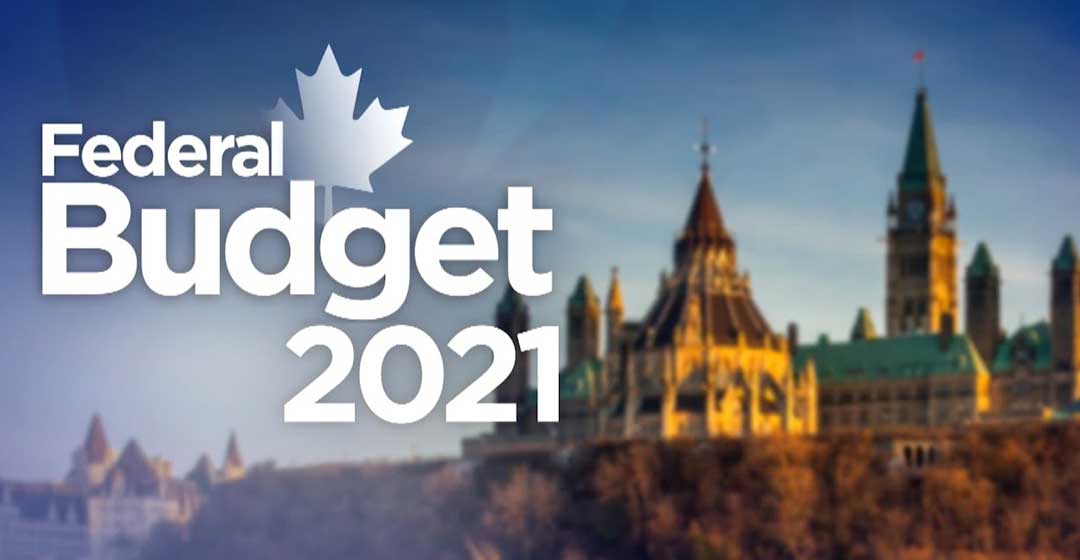
On April 19, 2021, Deputy Prime Minister and Finance Minister Chrystia Freeland tabled in the House of Commons the Liberal Government’s first federal budget in more than two years, A Recovery Plan for Jobs, Growth, and Resilience (Budget 2021). Budget 2021 contains tax measures that provide additional COVID-19 support to Canadian businesses, promote clean energy, introduce new sales and excise tax measures, limit interest deductibility and address certain cross-border financing structures. These measures include:
COVID-19 Support and Recovery
- Extending existing COVID-19 emergency business supports and introducing a new Canada Recovery Hiring Program;
- Promoting immediate expensing of the acquisition of certain depreciable capital property (up to $1.5 million per year) by Canadian-controlled private corporations;
Clean Energy Investment
- Amending the list of eligible Class 43.1 and 43.2 clean energy equipment;
- Offering limited corporate income tax rate reductions for manufacturers of zero-emission technologies;
- Creating a new input tax credit for certain capital investments in carbon capture, utilization, and storage projects;
International Tax/General Corporate Tax
- Introducing new rules to limit the amount of net interest expense that may be deducted in computing Canadian taxable income and to limit the deduction of amounts paid or received under hybrid mismatch arrangements;
- Proposals to overhaul Canada’s transfer pricing rules following the Federal Court of Appeal decision in Her Majesty The Queen v Cameco Corporation(2020 FCA 112);
- Committing to continuing the Government’s work to modernize the general anti-avoidance rule (GAAR);
Sales/Excise Taxes
- Committing to creating an interim digital services tax applicable to digital services businesses and to enact previously announced GST/HST measures applicable to e-commerce platforms;
- Introducing an excise duty on vaping products and a luxury tax on personal use vehicles, boats, and planes;
Compliance/Audit Powers
- Restructuring Canada’s transaction disclosure rules, introducing a new class of “notifiable transactions,” and requiring disclosure of uncertain tax positions; and
- Strengthening the CRA’s audit authority to compel persons to answer all proper questions for any purposes related to the administration or enforcement of, amongst other statutes, the Income Tax Act(Canada) and the Excise Tax Act(Canada).
Source: McCarthy
Newsletters
No Results Found
The page you requested could not be found. Try refining your search, or use the navigation above to locate the post.
Events & Sponsorship
No Results Found
The page you requested could not be found. Try refining your search, or use the navigation above to locate the post.
Articles & Publications
SCAM ALERT! Beware of COVID-19 fraud
SCAM ALERT! Beware of COVID-19 fraud. The Peterborough Police Service is warning residents that scams related to COVID-19 are beginning to circulate across Ontario. Although the service has not officially received a complaint or report of the activity in its...
Ottawa extends tax deadline to June 1 due to coronavirus
Canadians will have extra time to file and pay income taxes to the Canada Revenue Agency, as the federal government looks to provide financial support for people and businesses in the midst of the coronavirus crisis. Prime Minister Justin Trudeau unveiled an $82...
Canada’s COVID-19 Economic Response Plan
The Government of Canada is taking immediate, significant and decisive action to help Canadians facing hardship as a result of the COVID-19 outbreak. On March 18, 2020, the Prime Minister announced a new set of economic measures to help stabilize the economy during...
Tax Update 2020. What you need to know before you file?
What you need to know before you file? Let’s face it, having a trusted accountant and tax preparer can help to make tax-filing less and less painful even for the do-it-yourselfers.Still, whether you’re outsourcing the work to an algorithm or an accountant, it’s always...
Tax changes for 2020
The government recently announced increases to the basic personal amount for 2020 and subsequent years beyond the normal inflationary adjustment. Let’s take a look at some of the new tax numbers coming for 2020. ANNUAL INFLATION ADJUSTMENT Each year, most income tax...